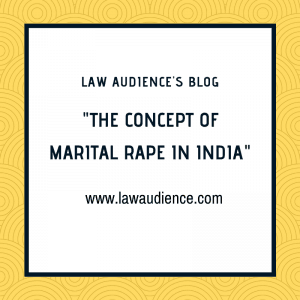THE RIGHT TO HEALTH AS A FUNDAMENTAL RIGHT[1]
Everyone has “the right…to the enjoyment of the highest attainable standard of physical and mental health[2].
INTRODUCTION:
In an individual’s life, the basic component is health. According to the World Health Organization, health is a state of complete physical, mental and social well-being not merely the absence of any disease or injury[3]. It infers from the principle of economic and social productivity to uplift the pillar of sustainability, empowerment, and equity. Safeguarding good health is most important if the mankind is to survive and evolve, to achieve this; it is the legal responsibility of the state to establish agencies to take care of the individual’s right to health. It is the duty of every sovereign to recognize the needs of the population to promote health, peace, morals, and education. In India, the right to health has been constituted as the indispensable right since independence. The makers of the Constitution have enumerated a right to health in various parts of the Constitution of India.
CONSTITUTION AND HEALTH:
The Preamble to the constitution states in that India, a republic should ensure social, economic and political justice which indirectly infers to equal opportunity in safeguarding its citizens’ health and peace. It aims to establish democratic socialism and to improve the health of the people. Under, Article 21[4] of the Constitution deals with “no person shall be deprived of his life or personal liberty except according to procedure established by law.” The right to life means not merely an animal existence but also includes the right to life with human dignity and decency[5]. In many cases, the Supreme Court has held that the right to health and medical care is a fundamental right covered under Article 21. Health is essential for making the life of an individual; prosperous, meaningful and workable. Article 23[6] though not directly but indirectly related to health. It prohibits human trafficking like, forced labor, prostitution etc. Article 24[7] is related to child labor which aims to improve the quality of health of the child. Legal prohibition of commercialized transplantation of human organs and effective implementation of consumer protection act which deals with medical services has played a significant role in glorifying right to health as a necessary right.[8]
DIRECTIVE PRINCIPLES AND HEALTH:
Although directive principles of state policies are not enforceable their presence in the constitution portrays the ideologies of the constitution makers in creating health as a fundamental right. Article 38[9] of the constitution imposes liability on the state that the state shall secure a social order of the society but it is not possible until and unless public health is improved. It signifies that without public health and welfare of the people it is impossible. Article 41[10] provides the right to assistance in case of any sickness and disablement. This implication is obvious. Article 47[11] directly imposes a liability on the state with regard to raising the level of nutrition and standard of living of its people and improvement of public health as it is the primary duty.
JUDICIAL PRECEDENTS AND HEALTH:
Judiciary being the third pillar of the democracy from time to time has upheld the sanctity of the constitution. Making health an important right, there are a series of cases which deals with the right to health as the basic structure of the constitution.[12] In the case of Consumer Education and Research Center v. Union of India[13], the court held that the right to health is a fundamental element of the right to life and personal liberty. The court held that the right to health and proper medical care is a vital part of Article 21. In the case, State of Punjab v Ram Lubhaya Bagga,[14] the Supreme Court examined that according to article 21, 41 and 47 the right of an individual correlates to a duty imposed upon another individual, employer, or authority; Hence, the right to health comes under the ambit of article 21 that impose an obligation on the state. In the case Paschim Banga Khet Mazdoor Samity & Ors v. State of West Bengal & Ors,[15] the Supreme Court widens the scope of article 21 and the government’s responsibility to provide medical aid to every citizen. The court held that in promoting the welfare of a state, the foremost duty of the government is to secure the welfare of the society. Providing sufficient medical facilities to the local population is the duty of the government which is imposed by article 21 in order to safeguard the right to health of every person. Providing better health facilities in the government-run hospitals is of paramount importance, failure of which will violate article 21 of the citizens.
CONCLUSION:
Health is a subjective term; everyone has a different perspective for a healthy living. It is in the 20th century when the decolonized states recognized the value of the right to life as not merely an animal existence but a life free from diseases and pain. The term Right to Health has not witnessed directly in the constitution of India, yet the Supreme Court interpreted it as the most vital right around which rest of the rights sustain. In the material sense, the court has played a pivotal role in creating obligations on authorities to maintain and improve the population’s health. It has been rightly said that health and education are the two important aspects of the development of human resources. There must be constitutional obligation ought to be imposed on the government to maintain the minimum standard of health care. For achieving the objective of the health care for all the population, the government should also mobilize a number of Non-Governmental Organization to aware the population to participate in various schemes started by the government.
[1] AUTHORED BY: MR. PRANAV TOMAR, B.A.LL.B, 1ST YEAR STUDENT AT RAJIV GANDHI NATIONAL UNIVERSITY OF LAW & RESEARCH WRITER AT LAW AUDIENCE: EDITED BY: MS. SONAL GUPTA, B.A.LL.B, 2ND YEAR STUDENT AT SYMBIOSIS LAW SCHOOL, HYDERABAD & ASSISTANT EDITOR AT LAW AUDIENCE.
[2] International Covenant on Economic, Social and Cultural Rights (ICESCR), Article 12, http://hrlibrary.umn.edu/edumat/hreduseries/tb1b/Section3/covenant.html.
[3] WHO | Constitution of WHO: principles, WHO, http://www.who.int/about/mission/en/.
[4] INDIA CONST. Article 21, “No person shall be deprived of his life or personal liberty except according to a procedure established by law.”
[5] Ibid.
[6] INDIA CONST. Article 23, “Prohibition of traffic in human beings and forced labour: (1) Traffic in human beings and beggar and other similar forms of forced labour are prohibited and any contravention of this provision shall be an offence punishable in accordance with law (2) Nothing in this article shall prevent the State from imposing compulsory service for public purpose, and in imposing such service the State shall not make any discrimination on grounds only of religion, race, caste or class or any of them”.
[7] INDIA CONST. Article 24, “Prohibition of employment of children in factories, etc. No child below the age of fourteen years shall be employed to work in any factory or mine or engaged in any other hazardous employment Provided that nothing in this sub clause shall authorize the detention of any person beyond the maximum period prescribed by any law made by Parliament under sub clause (b) of clause ( 7 ); or such person is detained in accordance with the provisions of any law made by Parliament under sub clauses (a) and (b) of clause ( 7 )”.
[8] Spring Meadow Hospital v. Harijol Ahluwaliya, A.I.R. 1988 S.C. 180 (India).
[9] INDIA CONST. Article 38, “State to secure a social order for the promotion of welfare of the people: (1) The State shall strive to promote the welfare of the people by securing and protecting as effectively as it may a social order in which justice, social, economic and political, shall inform all the institutions of the national life (2) The State shall, in particular, strive to minimize the inequalities in income, and endeavour to eliminate inequalities in status, facilities and opportunities, not only amongst individuals but also amongst groups of people residing in different areas or engaged in different vocations”.
[10] INDIA CONST. Article 41, “Right to work, to education and to public assistance in certain cases The State shall, within the limits of its economic capacity and development, make effective provision for securing the right to work, to education and to public assistance in cases of unemployment, old age, sickness and disablement, and in other cases of undeserved want”.
[11] INDIA CONST. Article 47, “Duty of the State to raise the level of nutrition and the standard of living and to improve public health The State shall regard the raising of the level of nutrition and the standard of living of its people and the improvement of public health as among its primary duties and, in particular, the State shall endeavor to bring about prohibition of the consumption except for medicinal purposes of intoxicating drinks and of drugs which are injurious to health”.
[12] Bandhua Mukti Morcha v. Union of India, A.I.R. 1984 S.C. 812 (India).
[13] A.I.R. 1995 S.C. 636 (India).
[14] A.I.R. 1998 S.C. 1703 (India).
[15] (1996) 4 S.C.C. 37 (India).



